What Are We: A Case for Body Acceptance
This week, we will be exploring the various terms for how we refer to our activism here on Fierce, Freethinking Fatties. Each day we will look at a different term, some familiar and some new, and at the end of the week we will leave it to you, our readers, to vote on the term that you feel best defines our activism.
When I was asked by Shannon for input on deciding what Fierce, Freethinking Fatties was, I had no idea that I would actually have to write my reply as a blog post. I picked Body Acceptance because I thought it sounded good. But now, as I compose my thoughts, I realize some people in the Fatosphere may have a problem with the term.
I’m sure that to some, Body Acceptance means we accept and campaign for people whose bodies aren’t constantly regarded as shameful, unattractive and unhealthy. Specifically, anyone who benefits from thin privilege now or in the future. I can see how those may feel that we are going against our own interests by allowing smaller fats, dieters who agree that being fat is perfectly fine (not for themselves, but everyone else), and thin people who act as our allies to have a say and express their ideas and opinions in this community: people who aren’t told by doctors that weight loss is the only cure for any ailment under the sun; people who can shop in straight-sized stores; people who are able to eat in public without hearing drive-by comments from strangers judging what goes into their mouths; people who don’t have to hear family and friends concern troll them; or people who don’t get insults hurled at them in public really may not know how difficult it is to be a non-loathing fat member of society.
Another hot topic that comes up regarding Body Acceptance is that we are pressued to accept people who practice feederism and/or use eating disordered behaviors as “thinspiration.” I admit this is a very slippery slope. If I’m going to advocate for Body Acceptance, does this mean I advocate for people who are, for lack of a better term, hinderances to the message we’re trying to send?
I think the answer to using the term Body Acceptance is removing all of these what-ifs and basically stating that Body Acceptance means we realize that peoples’ bodies are their own and we don’t get to dictate what we think they should do with them. We may not like or agree with some of the things people do to, and with, their bodies, but we don’t have the final say.
If someone wants to deliberately lose weight for whatever reason, it’s their right. If someone wants to deliberately gain weight for whatever reason, it’s their right. If someone is already fat and they don’t want to change anything, that’s their right.
Also, weight is just a fraction of overall Body Acceptance. There are other factors too. If someone wants to dye their hair aqua, it’s their right. If someone wants to cover their face with tattoos, it’s their right. If someone wants to get other body parts pierced besides the usual places, it’s their right. If someone wants to not shave, it’s their right.
Whatever phrase is chosen to define who we are, there really is no wrong or right. We will continue to spread the message that there is no one ideal way that human beings should look like, and if we spread that message as Body Acceptance or Fat Acceptance or Self Acceptance or Fat Liberation, then we are doing the job we set out to do.





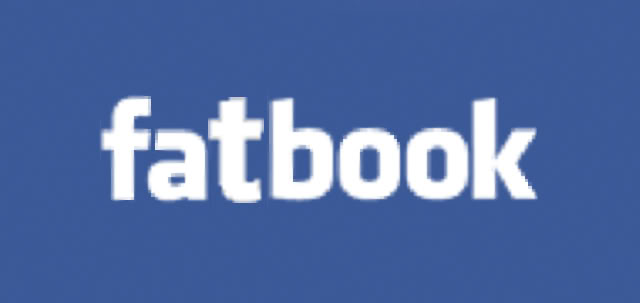


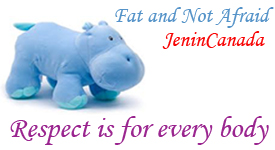

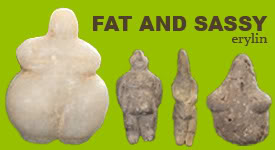
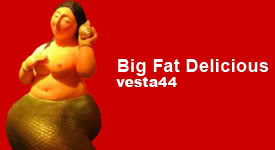





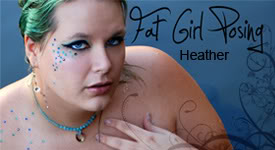


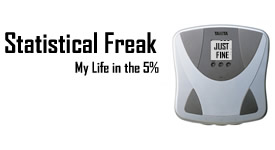


Well said! I have to add that as a body acceptance site we are also including the disabled folks who are frequently discriminated against in an able bodied world.
It does tend to sound like advocating for eating disorders being a personal choice (or, as some pro ana sites claim, a lifestyle choice). I have entirely different reasons for preferring the term fat acceptance, but I don’t like to send the message that we should let mentally ill people do whatever they want because it’s their choice- because it’s not.. that’s what mental illness means. Maybe I’ve seen way too many people apply the same logic to people who are depressed or suicidal- it’s their choice, if they want to die, let them! You can’t help them so why bother? It’s none of your business, stay out of it. In this way I think we’re failing those who are sick- we’re basically saying “you’re sick, you have no means of getting well, but we’re just going to step over here and pretend nothing is happening”. I feel like this attitude is ableist in and of itself and having been the victim of this type of mentality myself, I feel it does more harm than good.
I’m autistic and frankly, I hate it when people talk about “ableism” because it sends the message that you who are not disabled get to choose what’s best for us who are. I’m considered ‘mentally ill’, but I’m a living, breathing human being who functions differently than the horde. Saying you want to “help” depressed people is great, but if I was on the receiving end of that kind of attitude, I’d tell you not to patronize me.
This is why I didn’t include mental illness in with my post. I had a job where I dealt with adults who suffered not from autism, but depression, bipolar disorder and paranoia. Now, the majority of them did receive help and medication but the fact of life is, some don’t want to seek treatment. Might there be huge complications and disasters as a result of refusal? Definitely, but it’s not my place to tell other adults what to do with their bodies and minds. That’s the main point I was trying to grapple with while writing this post. If I don’t want you telling me to sign up for Jenny Craig, I’m not going to tell you to check yourself into a mental hospital, even if there may be some health benefits along with it.
Autism is a little different just because it’s a hard-wiring in the brain - it’s not, from what we can tell, based on hormones or anything that might be affected by medication. However, I always appreciate when people are patient with me and understand that while yes, some of my Asperger’s symptoms complicate my life, there are also things about it that I consider gifts. That’s why I tend to look askance at accusations of “ableism” in anyone; society classifies me as ‘disabled’ but I sure don’t feel it. Anyone trying to tell me what to do or how to think gets a sharp tongue-lashing.
The point of this is that “Body” acceptance, to me, is just that. Accepting someone else’s body, whether it’s very thin, very fat, somewhere in between, formed differently, or hell, accepting that some people want different bodies or believe they were born in the wrong ones. This isn’t rocket science in my eyes.
You are aware, of course, that Heather has mental health issues herself and that she is speaking from experience? Your comment implies that Heather is someone that wants to baby people she knows nothing about, which is rather presumptuous.
Forgive me, Heather, for speaking for you and correct anything I might have got wrong.
Other than that, CC, you have a point. I wrote a post on my blog about how the whole world thinks they need to bully ill and disabled adults “for their health.” I think you can accept someone’s right to do something without lending your seal of approval to it.
I wasn’t aware and I apologize; I tend to jump the gun on issues that matter to me. That doesn’t change the fact that I dislike the attitude, but I would have phrased it differently.
I like the term body acceptance best. I don’t think there exists a term that truly eliminates all the “what/but ifs.” Someone will always think of ways it could possibly imply something that you don’t want to advocate. You can always try to clarify in the About page what you do and don’t advocate and what you do and don’t agree with but understand that everyone is free to do as they please.
Personally, I like the term Body Acceptance exactly because it embraces all bodies. But I think the concerns Bree raised are already a part of Fat Acceptance, mainly bodily autonomy. Elizebeth included bodily autonomy in our Tenets of Fat Acceptance and I completely agree.
On Heather’s point, I disagree that bodily autonomy means that “we should let mentally ill people do whatever they want because it’s their choice.” First of all, all mental illnesses reside on a spectrum. Having a mental illness does not mean they shouldn’t have bodily autonomy. Just because a person is suicidal, doesn’t mean they lose the freedom to choose for themselves either. There are limits to intervention, even in cases of self-harm or eating disorders. You can only do so much to prevent someone from engaging in unhealthy behaviors, short of having them committed against their will, but that is an extreme situation.
I touched on this on Friday, when I talked about how there are limits to appropriate interventions, usually depending upon your relationship with the person. So, if my wife suffers from depression, I have a greater obligation to intervene than if I was one of her coworkers. From the perspective of a spouse, I can see how the depression affects her on a daily basis in a more intimate and detailed manner, whereas a coworker gets only a glimpse. That coworker may see something that worries him, but unless he believes my wife is in immediate danger, it is incredibly condescending and patronizing to assume that I have any business commenting on her mental health.
But all of this is a totally different subject from the one I wanted to comment on, which is the appropriateness of Body Acceptance. For me, the “Acceptance” that is referred to in Fat, Body or Size Acceptance is first and foremost about self-acceptance. Yeah, we are trying to get society to accept that fat people exist, but the most important mission we have is to help people accept their own bodies as they are.
Body Acceptance invites people of all sizes and shapes, all abilities and disabilities, to love themselves as they are. So, in that way, true Body Acceptance (or any acceptance-based activism) would discourage both dieting and feederism, since both lifestyle choices are primarily about non-acceptance of the body. Yes, we support bodily autonomy, but we hope to educate people so that they will make the choice to accept their bodies as they are, rather than as a body in need of changing. But, in addition, we don’t judge or shame people who make lifestyle choices that we find inappropriate.
Does that make sense?
Peace,
Shannon
As someone who lives with bipolar disorder, borderline personality disorder, and OCD, I have to say that mental illness is a delicate subject. I don’t want people patronizing me or treating me like I’m crazy. I understand how the material world works-any of my “crazy” esoteric ideas have very little to do with my brain’s issues. I also don’t want people treating me like an idiot child-I’m reasonably intelligent. But I do tend to get my feelings hurt easily (mostly thanks to the borderline personality disorder) and I wish that people would try to be a little kind-not just to me, but to everyone. Our world has become far too mean.
I would love it if someone out there wanted to offer me real help-not a patronizing pat on the head but to explore what really would work to help me live a fulfilling and reasonably happy life. I’ve long ago gave up on it happening, but it would be nice.
I like body acceptance because it includes people with deformities. I see lots of parallels between face equality-celebrating facial differences and promoting the interests of those with deformities-and fat acceptance.
At the same time, I do think there needs to be a movement dedicated specifically to fat acceptance, just as there needs to be a distinct eating disorder/face equality/ableism/etc movement. Without movements with distinct features, the message gets diluted.
Then again, there are very few places on the web that provide a safe space for all issues at once. FFF can be the first.
I dunno, body acceptance seems like too broad a brush to me. I was watching TV the other night and a commercial came on for a show called Taboo and one of the episodes was about a person who wants to become a paraplegic. It shows that person being able to walk, but sitting in a chair, lifting hir legs off a bed; wearing leg braces and walking with a wheelchair, putting that wheelchair in the trunk of a car. Zie is saying that zie won’t feel “whole” until zie can have the operation to become paraplegic. To me, this is a person who could really benefit from body acceptance or self acceptance, whereas fat acceptance or fat liberation isn’t going to mean much at all to hir (zie is not fat).
While everyone can benefit from body acceptance (after all, what person doesn’t have some issue about their body?), I think we need something that specifically defines this space as fat friendly/supportive/advocating.
i agree with vesta…as someone who was in eating disorder therapy for a LONG time, my issues with my body are not the same as an anorexics. i have been part of the body acceptance movement since college. For me body acceptance is anorexia awareness and ADA rallies. There was no place for my fat ass at body acceptance week at my college…. (go MU!) it was all 75 lb sorority sisters. I hated myself and my body (oh and never stopped the bulimia) until i found fat acceptance/liberation (whatever we decide to call it).